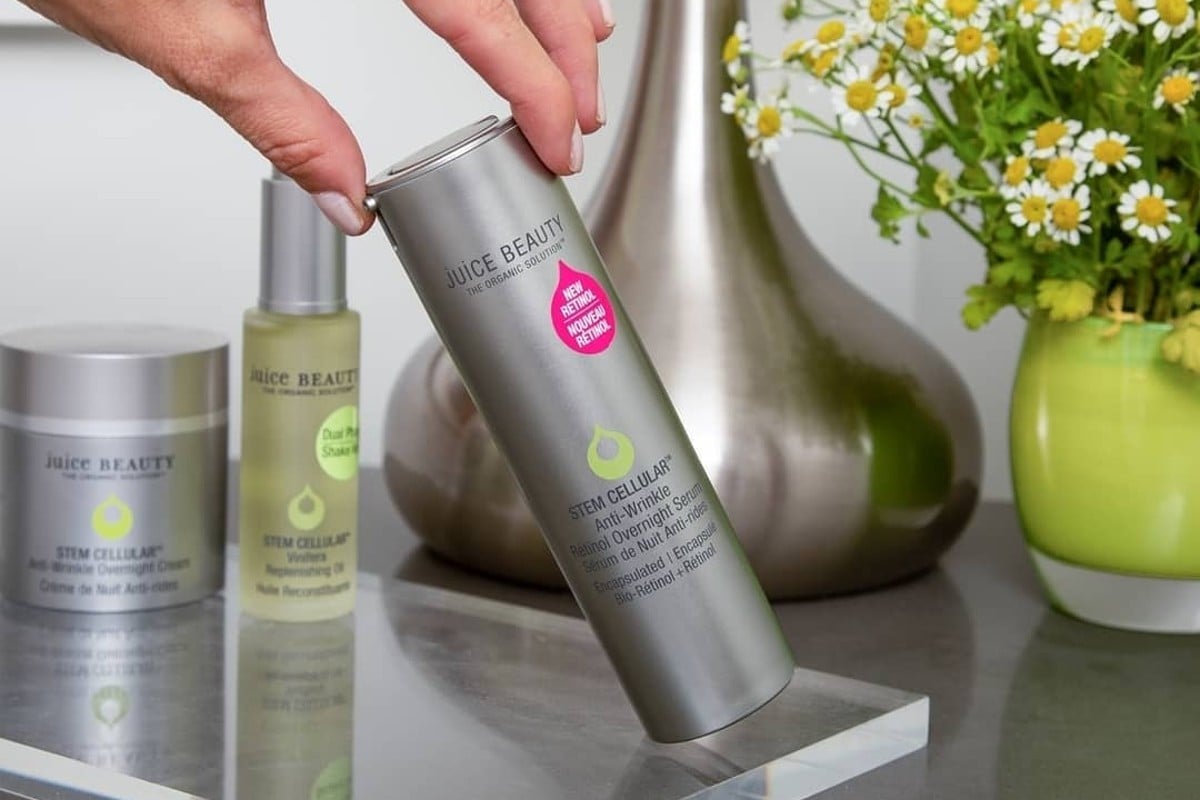Natural and Organic are Two Unregulated Terms that are Often Misused in Skincare Products. This is What They Mean
Are you tired of feeling like you’re walking through a minefield when it comes to buying natural and organic skincare products? Sadly, we’re often misled by beauty brands that claim their products are organic and natural, but are actually loaded with relentless chemicals. With confusing regulations left and right and the infamous under-regulation of the cosmetics industry, it’s no wonder that those committed to all-natural skincare are overwhelmed in their search for real products. To shed some light on this, we’ll dispel the confusion and help you understand the difference between organic and natural, and how these labels differ from chemical-free and synthetic-free.
What are organic skin care products?
In skincare, the term “organic” refers to products made with organically grown ingredients that are grown without the use of synthetic pesticides, fertilizers or other harmful chemicals. Unfortunately, the situation is rather murky when it comes to labeling beauty products as “organic”. This is because the FDA does not oversee or enforce regulations regarding the use of this term. Yes, that means it’s up to us, the consumers, to confirm its authenticity.
But the good news is that we can easily identify organic products by looking for the “USDA” seal on the package. The USDA requires that at least 95 percent of organic ingredients in cosmetics be labeled as “organic,” while the remaining 5 percent can be chemicals and other artificial ingredients, such as preservatives and fragrances. According to USDA labeling standards, a product is also eligible for the “Made with Organic Ingredients” seal if it contains at least 70 percent organic ingredients. However, products containing less than 70% cannot be labeled as “organic” and therefore will not carry the USDA seal.
What are natural skin care products?
The term “natural” is often misunderstood to mean consisting of only ingredients that are derived from nature. To this day, however, there is still no universally accepted or standardized definition of what constitutes a “natural” skin care product. In fact, the “natural” label is often used to indicate the absence of synthetic and artificial additives such as preservatives, fragrances and colorants, rather than the presence of naturally sourced ingredients.
Unlike “organic,” which is regulated by the USDA and requires products to contain at least 95% organic ingredients (excluding salt and water)[1], “natural” is a completely unregulated term. Even the FDA has no authority to define what is natural and what is not.
What does this mean? There is no minimum percentage of natural ingredients required to market a product as natural, which leaves the door open for brands to pull the wool over our eyes with all sorts of false marketing claims. But despite the current ambiguity surrounding the word “natural” in the skincare industry, there is a silver lining.
In 2019, U.S. Representative Sean P Maloney took a step toward addressing this issue by introducing the Natural Cosmetics Act. The bill aims to clarify the labeling of “natural” and “naturally derived ingredients. It defines “natural” as a product consisting of at least 70% unprocessed natural substances and “naturally derived ingredients” as ingredients derived from mineral, vegetable, animal or plant-based materials. [2]
However, the journey of the Natural Cosmetics Act into law is far from over. The bill should be approved by the committee and then scheduled for vote, discussion, and possible amendment. Only with a simple majority vote will it go to the Senate for further consideration. Until then, since no one believes in the “natural” label, it is incumbent upon us to diligently read a product’s ingredients list and verify that it is indeed free of artificial ingredients.
Natural vs. Organic
The terms “natural” and “organic” are often used interchangeably, but they are not the same. “Natural” usually refers to products made with natural ingredients or without synthetic ingredients. “Organic” refers to products made with ingredients that do not contain synthetic pesticides or fertilizers. In other words, “natural” focuses on the source of the ingredients, while “organic” focuses on the growing process. Therefore, a product can be organic but not natural or natural but not organic.
In addition, certification by organizations such as the Natural Products Association or USDA Organic can be a useful indicator of a product’s natural and organic standards.
Are natural and organic products safer and better for your skin?
Remember, “natural” and “organic” does not necessarily mean that it is safer or better for your skin. Yes, most natural ingredients are milder and usually well tolerated. However, they can still cause irritation, clog pores and trigger allergic reactions – think tea tree oil or coconut oil. Therefore, it’s crucial to know your allergies and skin type to ensure you get the best results from your natural or organic skin care routine.




